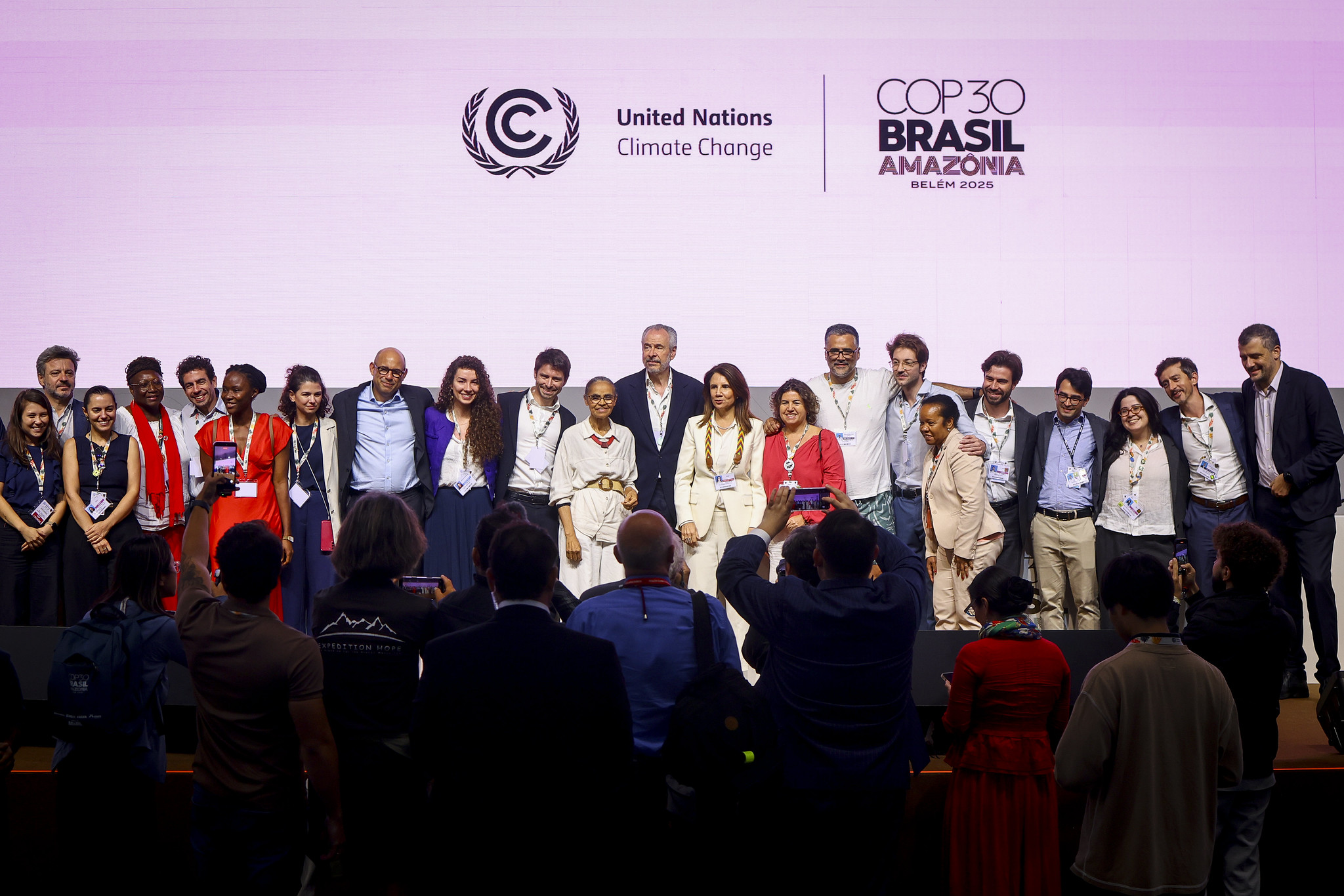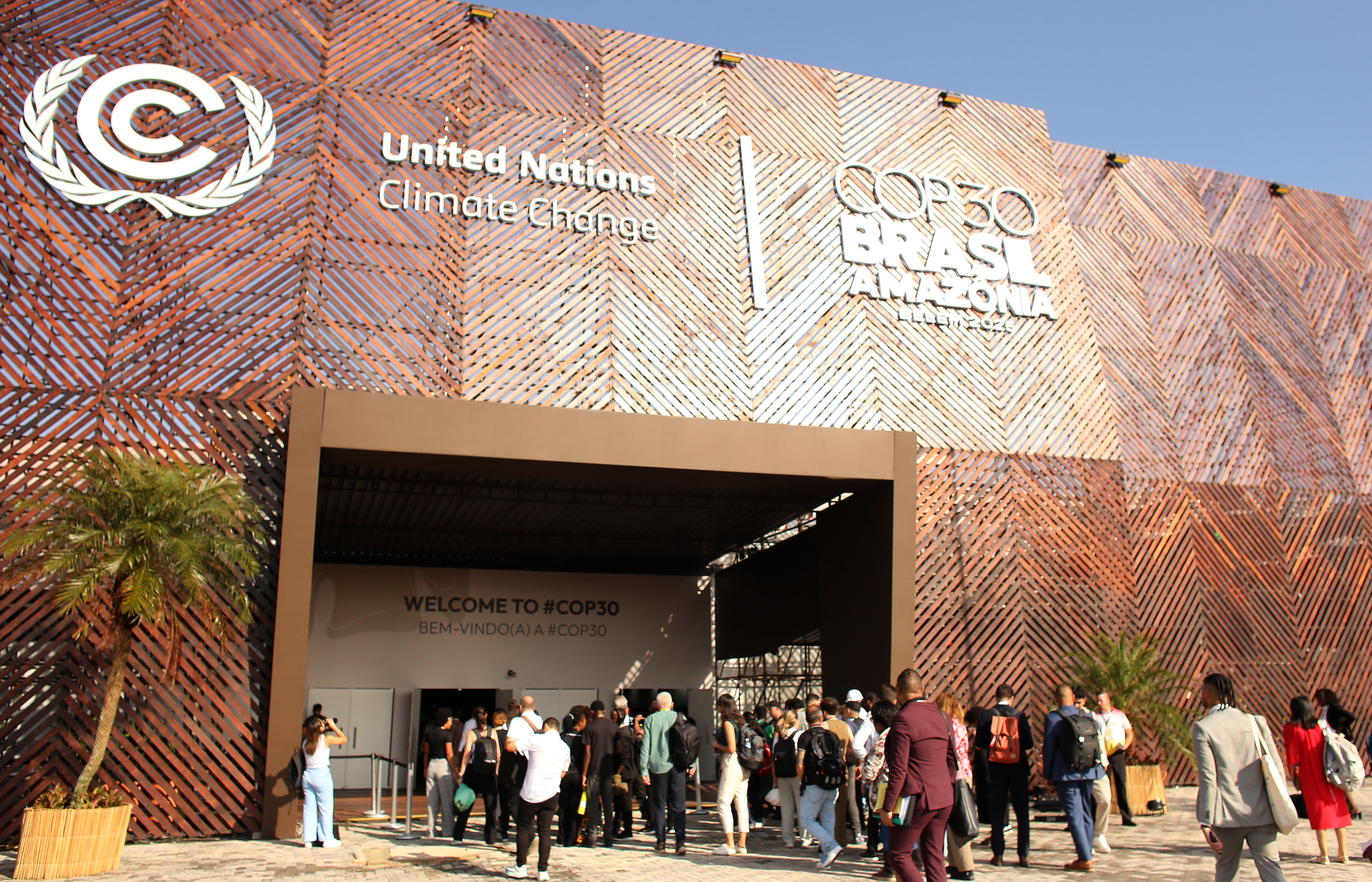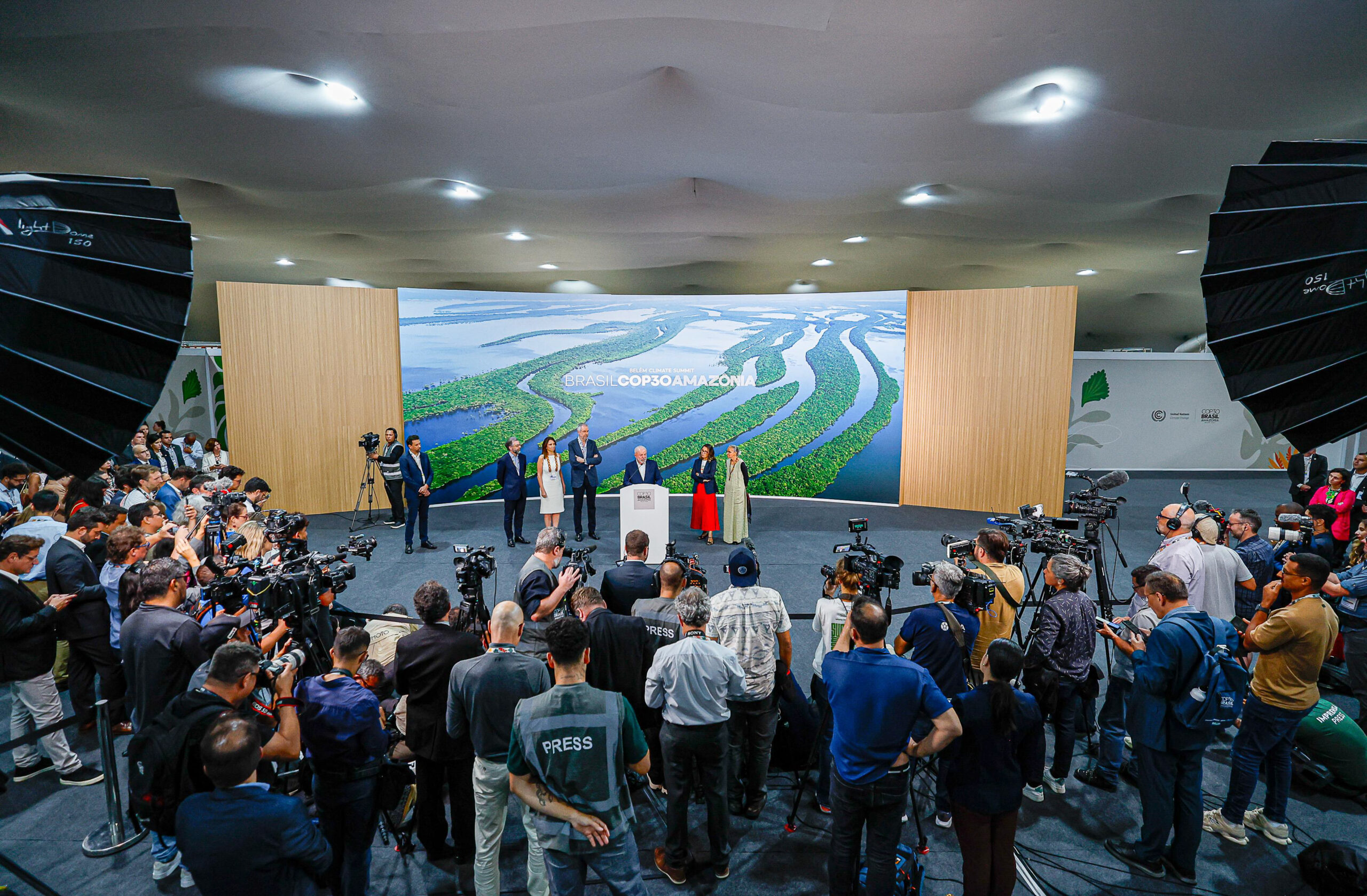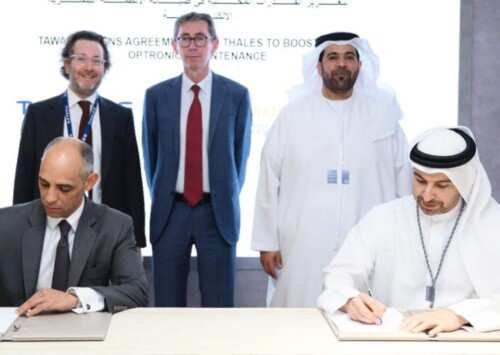COP30: Bitter betrayal in Belém
30 years on, world still drawing roadmaps to hell

Brazil with noble intentions and inspiring symbolism, had framed this COP as “People’s COP,” and the “COP of Adaptation”
Nearly three decades after climate change negotiations began, the world still remains at the drawing board stage, with little to show for 29 meetings of Convention of Parties (COP) as yet another meeting, COP30, ends in a thinly-veiled failure at Belem in Brazil.

Brazil with noble intentions and inspiring symbolism, had framed this COP as “People’s COP,” and the “COP of Adaptation”
Brazil’s President Luiz Inácio Lula da Silva, one of the strongest advocates for environment and the developing world, and the Head of State of the host country of COP30 Climate Change meeting, had branded climate change conference in Belém as the ‘COP of Truth and Implementation’.
That statement emphasised the need for global leaders to face the truth of our collective failure and move from empty promises and denial to concrete climate action. Sadly, even after gallant efforts, along with sincere and thoughtful organisation and conduct of the COP30 by Brazil, global inaction emerged as the sole outcome and a ‘ bitter truth’ from the meeting.
For the two weeks that COP30 had been on, the Amazonian forest, world’s lungs, and the winding Amazon River that nourishes those lungs, and which flows beside Belem, underwent a peculiar autopsy.
The global community dissected its own collective failure to limit the rise in temperature 1.5°C above the pre-industrial level. The diagnosis, delivered with grim finality by UN Secretary-General António Guterres before the talks even began, was that a “temporary overshoot” of temperature may now be permanent, leaving us with no option but to target the next goal of limiting the temperature rise to 2°C as indicated by Intergovernmental Panel on Climate Change (IPCC), an international organisation of scientists mandated by the United Nations to track climate change and suggest measures to protect the environment. The planet, the patient, is in critical condition, and the doctors are still arguing over the basic design of the cure!
The host, Brazil, with noble intentions and inspiring symbolism, had also framed this COP as “People’s COP,” and the “COP of Adaptation.” But the final outcome feels like a breakthrough and more like a ‘COP of Roadmaps’!
After 30 years of UN climate negotiations, are we still on the drawing board? The evidence from Belém suggests a disheartening yes.
Also read: COP30: Flood of climate finance needed, not a trickle
Mirage of ambition versus reality of inaction

The Amazon takes center stage in the global climate agenda
As Guterres had said, yes progress has been made in Belem, but it remains grossly insufficient. The core failure of COP30 lies in its handling of the root-cause of the crisis, fossil fuels.
In his opening address, Guterres was unequivocal. “I have consistently advocated against more coal plants or fossil fuel exploration and expansion. No more greenwashing. No loopholes,” he said in the opening plenary and demanded that the COP28 commitment in Dubai to “transition away from fossil fuels” be turned into action.
But, what did we get at the end of COP 30? A glaring omission of words phase-out of fossil fuel that were so effectively introduced for the first time ever in COP28 under leadership of Dr Sultan Al Jabar , the President of COP28. Despite a powerful bloc of 88 countries, from the EU to South American nations, pushing for a definite “roadmap” to phase out fossil fuels, the final text of COP30 blinked.
The Mutirão decision, Portuguese for ‘collective efforts’, the high-level political outcome, contains no such roadmap for phasing out fossil fuels. It merely “recognises” the need to “take forward” the two-year-old ‘UAE Consensus’. The fossil fuel lobby, and the nations captive to it, successfully watered down the text in the massive flow of Amazon. Russia and India, recent linchpin-countries in oil-trade supported the diluted decision.
This is not implementation. This is procrastination. As Brazilian scientist Carlos Nobre starkly warned in Belém, to avoid catastrophic warming of up to 2.5°C, fossil fuel use must fall to zero by 2040. In response, the world’s leaders did not set a deadline. They kicked the ‘can to the next COP’, promising yet another report and another dialogue. Unfortunately and in a clear display of the level of sincerity that the world leaders have in addressing the biggest existential threat to the planet, many delegates responded very flippantly to the question, “What next after COP 30?” Their response was “COP31!”
The finance breakthrough? : A fragile lifeline
To call COP30 an absolute failure, however, would be to ignore real, hard-won progress, particularly on will to support climate finance. This is where the “Implementation COP” label finds some purchase!
The agreement to mobilise USD 1.3 trillion by 2035 is a landmark resolve and confirmation arrived at in COP29 in Baku. The tripling of adaptation finance by 2035, the operationalisation of the Loss and Damage Fund, and the establishment of a two-year work programme to nail down these financial flows are new crucial steps. The launch of a “Just Transition Mechanism” is also a vital recognition that signals a shift to green economy with human touch . The world has expressed that transformation must be fair and equitable.
But here, too, the devil is in the details and in timely delivery. The adaptation finance target year was weakened from 2030 to 2035, a delay that climate-vulnerable countries, especially the Small Island Developing States and poorer nations in Africa and Asia, can ill afford. The International Institute of Sustainable Development has stated that the decision does not meet the growing adaptation finance need and will delay urgently needed action.
Furthermore, these are largely promises and processes. The story of climate finance is a history of broken pledges and half-hearted scattered deliveries as the goal of USD 100 billion-a-year has never been met, not even for a single year. On what basis should the developing world believe the rich nations that the much larger goal of USD 1.3 trillion will be met and that too, in time?
Also Read: Climate activists urge COP30 Presidency to set bold fossil fuel phaseout targets
Accountability deficit: A crisis of confidence with severe consequences

Developed countries have consistently failed to meet their finance obligations
This leads to the most profound failure of the entire UNFCCC process, a staggering lack of accountability. The gross violation of implementation of ‘Common but Differentiated Responsibility’ (CBDR) that was universally agreed in Rio de Janeiro in Brazil during the Earth Summit in 1992. Guterres has rightly said that it is no longer time for negotiations. It is time for implementation, implementation and implementation.
But, implementation is voluntary and there is no mechanism to force those who fail to implement. Reality check on zero accountability is that up to now 79 countries have not yet submitted their updated Nationally Determined Contributions (NDCs), even after several extensions of deadlines by the UNFCCC. These NDCs are needed to devise the ways to put the world back on the track to meet the climate goal of 1.5°C. Surprisingly, these 79 countries include India, the only major country in the world not to have yet submitted revised NDCs and the only one in South Asia, excluding Afghanistan. The new NDCs were also critical for COP30 to kick off the New Collective Quantified Goal (NCQG) for climate-finance. Where is the pressure, the naming-and-shaming, the consequence for those who are late? Developed countries have consistently failed to meet their finance obligations. Where is the penalty? We have a system built on voluntary contributions and peer pressure, but when the peers are the biggest polluters and the when the pressure is applied, they simply water down the text. Many indicated that there is need to take ‘ Global Ethical Stocktake’ before ‘Global Emission Stocktake’!
The problem is not lack of viable solutions, but that of willingness and sincerity. As Guterres powerfully put it, we have never been better equipped to fight back. The clean energy revolution is here, winning on price, performance, and potential. Solar and wind are the cheapest sources of power in history. In 2024, USD 2 trillion flowed into clean energy.
“What’s still missing,” as the Secretary-General pinpointed, “is political courage.”
This courage is absent because there are no real consequences for defaults. A country that submits a weak NDC or misses a finance target faces no penalty. Meanwhile, corporations continue to reap record profits from climate devastation, spending billions on lobbying, deceiving the public and obstructing progress.
From roadmaps to reckoning

79 countries have not yet submitted their Nationally Determined Contributions
So, was COP30 a failure? While it was far from anything resembling a triumph, it was not a total collapse either. It was a stark reflection of a world at cross with itself, a world where the economic and scientific imperative for a clean future is grossly lost its way in thick Amazonian forest. The entrenched power of a dying industry was evident in the corridors of the Belem.
Calling COP30 as the “COP of Roadmaps” is too kind. Because it was the conclusion of the President of COP and not the decision of COP.
We are not heading for a climate pandemic, we have been in the midst of one for a few years. Wildfires, floods, and super-storms are not future economic and health related mega-threats; they are already shattering human-lives and global-economies today. And only vaccine is rapid, just, and complete decarbonisation of the global economy- Net Zero. .
The way ahead must be decisive and shake the foundations of this complacent process. The world must now move to more harsher and punitive measures, starting with naming and shaming relentlessly. Civil society, the media, and progressive governments must create an inescapable spotlight on laggards who promised but not performed . Every missed deadline, every weak NDC, every broken finance promise must be met with a global chorus of condemnation.
Another step is to elevate the “Coalition of the Willing”: The 88 countries pushing for the fossil fuel roadmap must not wait for consensus. They should form a “High-Ambition Alliance” and begin implementing their own coordinated phase-out, creating carbon clubs with trade and investment privileges for members.
A key step needed is to fix the finance pipeline and the new climate finance work programme must be ruthless in designing mechanisms for accountability. Independent tracking, faster disbursement, and automatic triggers for non-payment are essential. It is time for implementation at a war-footing, not just easy-paced, complacent negotiations.
Finally, the world leaders need to listen to the people, not the lobbyists. A decision of COP30 on the need to tackle climate disinformation is a critical, if overlooked, victory. We must break the stranglehold of fossil fuel propaganda that has hitherto paralysed political will.
COP30 is over, but our work is not. The Belém outcome is a patchwork of progress and postponement. It offers a financial lifeline but fails to cut the ropes that are pulling us to retain our addiction to fossil fuels.
Thirty years on, we are still negotiating the terms of survival. The truth of Belém is this: the roadmaps are now useless if we refuse to take the first, most critical turn. The next stop is not COP31 in Türkiye under the President-ship of Australia, instead the next stop is a point of no return.
We can either choose to lead, or be led to ruin. The time for drawing boards is over. The era of spring-board to dive into implementation and accountability must begin.
(Rajendra Shende is a former Director UNEP, Founder Director Green TERRE Foundation, coordinating lead author, IPCC that won Nobel peace prize, Prime Mover SCCN, IIT Alumnus. The views expressed here do not necessarily reflect those of Media India Group.)









